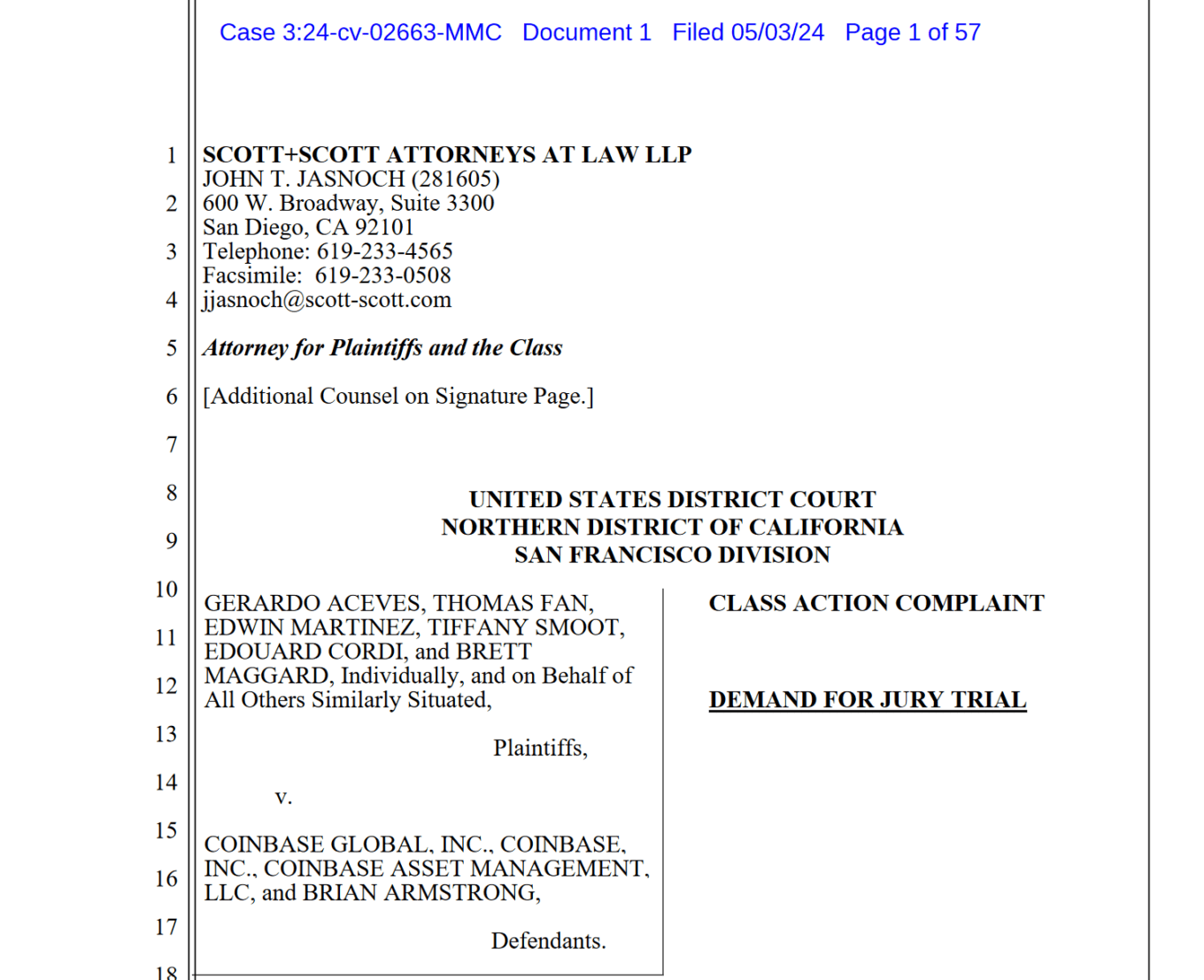U.S. crypto exchange Coinbase and its CEO Brian Armstrong are at the center of a new class action lawsuit. The lawsuit accuses them of deceiving investors by selling digital assets that are allegedly securities. The legal challenge, lodged in the U.S. District Court for the Northern District of California, San Francisco Division, claims that tokens such as Solana’s SOL, Polygon’s MATIC, and six others should be classified as securities.
The plaintiffs, a group from California and Florida including Gerardo Aceves, Thomas Fan, Edwin Martinez, Tiffany Smoot, Edouard Cordi, and Brett Maggard, argue that Coinbase has been in violation of state securities laws since its inception. According to the lawsuit, Coinbase’s own user agreement labels it as a “Securities Broker,” thereby acknowledging the nature of the digital assets it sells. This is particularly notable in the context of Coinbase Prime brokerage services, which the plaintiffs also identify as dealing in securities.
Coinbase has been a part of a shadowy crypto ecosystem operating just outside of the law since formed over 10 years ago. Its entire business model has been built upon a lie and a dream: the lie is that “we do not sell securities,” and the dream is that, knowing it would eventually be caught in the lie, “it is better to ask for forgiveness than permission.”
Class action law suit against Coinbase (link to lawsuit)
The class action seeks comprehensive legal remedies, including full rescission of the affected transactions, statutory damages as provided under state law, and injunctive relief. The plaintiffs have opted for a jury trial to resolve these claims, highlighting the gravity of their allegations against Coinbase.
This lawsuit is separate from another high-profile legal confrontation involving Coinbase and the U.S. Securities and Exchange Commission (SEC), which also scrutinizes the classification of tokens sold on the platform as securities. Coinbase is currently appealing a court decision allowing this SEC case to proceed.
This series of lawsuits underscores the complex and evolving regulatory landscape of the cryptocurrency industry, where the classification of digital assets continues to provoke debate and legal scrutiny. As these cases progress, they will likely have significant implications for how digital assets are sold and regulated in the United States.





